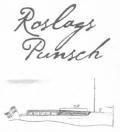Element of a trade mark cannot be excluded by a disclaimer from global analysis of likelihood of confusion
03-07-2019 Print this page
Member States are free to provide for waivers of rights under national law in so far as they do not impair the effectiveness of the Trade Mark Directive and, in particular the protection against trade marks that are liable to create a likelihood of confusion. Article 4(1)(b) Trade mark Directive 2008 precludes national legislation providing for a waiver of rights whose effect would be to exclude an element of a complex trade mark from the global analysis of the relevant factors for showing the existence of a likelihood of confusion within the meaning of that provision, that attributes in advance and permanently, limited importance to such an element in that analysis.
In the legal orders that provide for this, the registration of a trademark may be accompanied "disclaimer", if the application relates to an element of a trade mark in which one or more descriptive or general terms for one or more of the goods or services specified in the application are included. Depending on the applicable regulations, the disclaimer may be proposed spontaneously by the applicant or by the competent authority as a condition for registration. The purpose of the disclaimer is to clarify that the descriptive and non-differentiating term or terms of the requested sign that do not fall under the exclusive right and therefore remain available. The proprietor of the trade mark is therefore not entitled to prevent the use of these terms by other undertakings. In the present case, registration of the term 'ROSLAGSÖL' has been requested. The Swedish Office for Intellectual Property refused registration on the ground that there was a likelihood of confusion with the earlier figurative trade mark 'ROSLAGS PUNSCH' shown on the left. However, the earlier trade mark contains the disclaimer 'registration does not confer an exclusive right to the word 'Roslagspunsch''. The referring court wonders whether a disclaimer affects the assessment of the likelihood of confusion with a earlier trademark.
The referring court asks in substance whether Article 4(1)(b) of Directive 2008/95 must be interpreted as precluding national legislation making provision for a disclaimer whose effect would be to exclude an element of a complex trade mark, referred to in that disclaimer, from the analysis of the relevant factors for showing the existence of a likelihood of confusion within the meaning of that provision, or to attribute to such an element, in advance and permanently, limited importance in that analysis. Member States in principle remain free to lay down provisions in their national law allowing disclaimers to be recorded at the time of registration of signs as trade marks, whether those disclaimers are entered voluntarily by the applicant or at the request of the national authority with competence for registration, provided that the disclaimers do not impair the effectiveness of the provisions of Directive 2008/95, in particular the protection given to proprietors of earlier trade marks against the registration of trade marks liable to create a likelihood of confusion on the part of consumers or end users.
The CJEU rules as follows:
"Article 4(1)(b) of Directive 2008/95 must be interpreted as precluding national legislation making provision for a disclaimer whose effect would be to exclude an element of a complex trade mark, referred to in that disclaimer, from the global analysis of the relevant factors for showing the existence of a likelihood of confusion within the meaning of that provision, or to attribute to such an element, in advance and permanently, limited importance in that analysis"
IPPT20190612, CJEU, Patent- och registreringsverket v Hansson

















